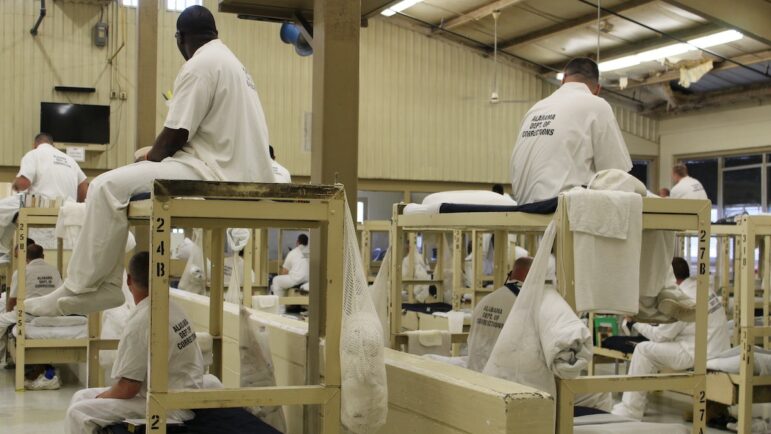State Sen. Will Barfoot spoke before the Alabama Senate in March, pointing out a discrepancy between people being sentenced today versus before the year 2000.
“Under the Habitual Offenders Act, around 150 to 200 people were sentenced to life without parole and if that same crime occurred today, they would not have that same sentence,” Barfoot said.
Barfoot sponsored a bill known as the Second Chance Act. Should it be enacted, judges could review certain cases where an individual was sentenced to life without parole under the Habitual Offenders Act for potential resentencing.
To qualify to petition for a resentencing, an individual must have served at least 25 years in prison. Only people who have no violent crimes in their record and did not cause physical injury to a person can qualify. The proposed law expires in five years. Officials estimate a few hundred people might qualify.
“That sounds like a small number compared to how many people are currently incarcerated in the state of Alabama,” Elaine Burdeshaw, policy director with the Appleseed Center for Law and Justice said. “But these are people who will die in prison if there’s no pathway to relief for them.”
Appleseed is a group of lawyers and advocates for incarcerated people and their families.
“We’ve talked with a man whose mother is in her 80s,” Burdeshaw said. “She just wants her son to be released before she’s gone.”
After several failed attempts in previous legislative sessions, the bill has gained more support than ever before.
“It’s about redemption for people who’ve served their time,” Burdeshaw said. “But it’s also about shepherding state resources in a smarter way than on endless incarceration for people who are aging, who never physically injured anyone.”
The bill has undergone some changes thanks to people like Wanda Miller, executive director of Victims of Crime and Leniency, or VOCAL.
“How are we gonna make sure that these victims are notified in a timely manner so that they can either come to court or they could write a letter to the court?” Miller said.
The bill now includes a step-by-step process by which victims will be notified that their case is under review for potential resentencing.
Miller said victims often were in a courtroom 20 or 30 years ago when they first heard the sentence.
“The victim left the courtroom thinking ‘I don’t have to think about this again,’” Miller said. “They could move forward. They could heal from whatever trauma they had experienced.”
Miller added that victims of a crime have their choices taken away from them. But the additional language in the bill requiring victim notification helps restore those choices.
“We’re not saying that every victim should oppose resentencing,” Miller said. “We’re just saying every victim should be heard.”
But Miller said, after decades, victims might feel differently and some even advocate for release.
Burdeshaw with Appleseed says they have collaborated closely with victim advocacy organizations to ensure that victims do have a chance to weigh in.
“It’s not a get out of jail free card,” Burdeshaw said. “We don’t wanna lessen the fact that a crime was committed. And so we do want to ensure that victims’ voices are heard.”
The Second Chance Act has passed through the Senate. It is now awaiting to be heard on the House floor.

